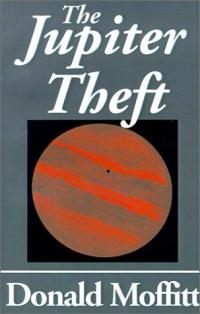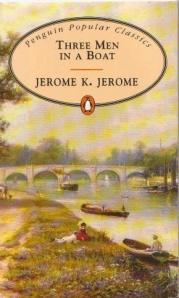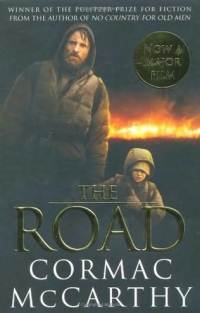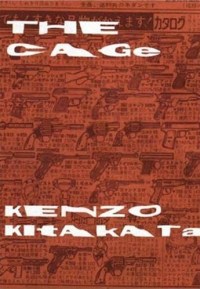The Jupiter Theft by Donald Moffitt
 Tuesday, February 1, 2011 at 12:12PM
Tuesday, February 1, 2011 at 12:12PM 
First published in 1977
An object the size of a large planet moves into the solar system at nearly the speed of light. Shortly after astronomers on the moon detect the object, however, it slows and shrinks. It seems to be entering a solar orbit when it suddenly changes course and begins to orbit Jupiter. Coincidentally, a planned scientific mission to a Jovian moon has been preparing for departure. A hastily assembled military force armed with nuclear weapons joins the team of scientists on its voyage. What they discover, of course, are aliens who appear to be moving into the neighborhood. It turns out that the aliens aren't interested in being good neighbors.
The Jupiter Theft is a plot-centered story that revolves around two alien species (with another playing a minor background role), although one of the species doesn't appear until the novel is nearing its end. Moffitt devoted considerable effort to alien building and ship building but gave less attention to character building -- a common enough failing in hard sf stories. Military characters are militaristic, government officials are bureaucratic, scientists are smart, and everyone else suffers from thought deficiency. If some of the loving care devoted to the novel's science had been diverted to character development, this would be a better book. Fortunately, the central idea (revealed about halfway through the story) is creative and the plot is entertaining.
Moffitt's prose style is less than scintillating and the dialog is wooden, sometimes silly. From time to time the story gives way to a science lecture -- another common failing of hard sf novels, but fortunately not a frequent occurrence in The Jupiter Theft. Some of the storyline is all too familiar, as when an alien tells a human: "You are too puny to interfere with our purpose." There's nothing very original about puny humans encountering (and being held captive by) technologically superior aliens. Moffitt's attempt to add a political dimension to the novel by commingling Americans and devoutly socialist Chinese in the crew adds unintended humor to the story.
Nonetheless, some aspects of the story are clever, some chapters are exciting, and most of the time the novel is sufficiently fast-paced to keep the reader soldiering on despite the novel's flaws. The ending is satisfying. There's enough fun here to entertain fans of alien cultures, hard sf, and fast action.
RECOMMENDED WITH RESERVATIONS



